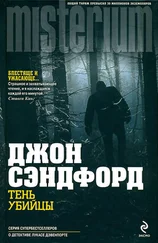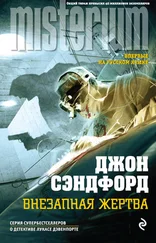Everybody nodded and there was a shuffling of feet and annoyed glances passed around the room, and then Weaver said, “Good,” and he turned to one of the senior agents and asked, “What do we have on the diver?”
The task force had contacted twenty-one female professional and semipro divers in the three-county South Florida area. Sixteen of them had provided superficially convincing alibis for the day of the shootings, which still had to be checked, but none of them looked really good for the diver being sought. Given Barney Hall’s description, many of them were simply too heavy, and that included three of the five who couldn’t provide solid alibis.
“We’re not seeing a lot of really, mmm, lithe female divers,” the lead agent said.
“That’s not what you see on YouTube,” the Lauderdale cop said.
“You spend a lot of time watching women divers on YouTube?” asked Taylor, the female Coastie.
“I do it some,” the cop admitted with a grin.
“YouTube divers are a whole different reality,” another agent said. “Anyway, we’re not feeling real good about the prospects with the ones we’ve checked. One of them told us something I guess we knew, which I’m not sure helps at all—the water out there where the dope is, runs anywhere from a hundred to two hundred and fifty feet deep. You can get training to dive down to a hundred and thirty feet in two weeks, starting from nothing. Going deeper than that, especially for novice divers, gets risky, but for the kind of money we’re talking about . . .”
“How long would it take to train to go down deeper?” Lucas asked. “Go down to a hundred and fifty or two hundred feet?”
“A lot of places wouldn’t do it for liability reasons. What you’d do is get some experience. Take the training to get down to a hundred and thirty, which is routine, learn something about nitrogen narcosis and really how to manage your decompression problems, then start dipping deeper. Take technical courses. Learn to really use your dive computer and your lights and whatever kind of direction finder you have.”
“Are you a diver?” Bob asked.
“Yeah.”
“What’s a decompression problem?”
The agent explained that nitrogen in air, under high pressure, as found in deeper scuba diving, is forced into the bloodstream. When the diver surfaces, the nitrogen can come out of the bloodstream as bubbles that lodge in the joints and internal organs, and cause painful, sometimes crippling, and sometimes deadly effects.
“It’s called the bends,” the diving agent said. “You don’t want the bends. You prevent them by stopping on the way back to the surface, when you’re still under pressure, to let the nitrogen work its way out of your body through the lungs . . . you exhale it as a gas.”
“I’ve heard of the bends,” Bob said. “Note to self: don’t get them.”
Lucas asked him, “How deep would you dive? On air, like the diver on the boat?”
The agent said, “A hundred and fifty feet wouldn’t bother me too much, but two hundred would be a problem. I wouldn’t do two hundred unless it was an emergency, and I sure as hell wouldn’t stay long. I wouldn’t be picking up any heroin cans.”
Another agent suggested, “Maybe . . . Trimix?” He looked at Lucas and Bob and added, “I’m a diver, too.”
“What’s Trimix?” Bob asked.
“A mixture of gases that’ll help you go deeper . . . but we checked that,” said the first diving agent. “The gas in the scuba tanks on the boat was straight air.”
The agent with all the certifications said, “The Coast Guardsman who shot the guy off the dock. Didn’t he say six cans were off-loaded from that Mako?”
Lucas said, “Yeah, six, but he’s not absolutely sure of that.”
“If the diver brought up six cans, we think that’d be a hundred and thirty pounds of dope, plus the weight of the cans—maybe a hundred and fifty pounds altogether. She probably had to manage at least three small lift bags or two bigger ones, which means she was probably down there for quite a while, finding the cans, loading them, managing the bags, then resurfacing. I doubt she’d be down two hundred feet. She’d have too much decompression time, hanging out halfway to surface and trying to manage those bags and the cargo bags, all at the same time. I’d bet she wasn’t down much more than a hundred and thirty or so.”
“That’s all wonderful, but is it relevant?” Weaver asked.
“Kind of suggests where you don’t need to look,” the diving agent said. “If we’re really going to look.”
“Okay.” Weaver dipped into his briefcase and came up with a stack of paper. “Now, you all know about our reward program. I want some volunteers to take the reward posters around to the dive shops and boating and fishing shops.”
He patted the stack of paper and said, “If I don’t get volunteers, I’ll make appointments. Volunteers are allowed to wear shorts and shirts, if you wish, even though it’s a little chilly out there now. If you’re willing to do this, see me when we break up.”
Lucas reported on the meeting with the local narcs, the arrest of Foot-Long and the aborted arrest of Axel Morris, and the chats with the other dealers. He left out Magnus Elliot, the name Morris had given up. He did mention the possibility that Morris believed the Mafia was involved and that they might be staying at the Angelus Hotel, which raised some eyebrows and even the level of enthusiasm.
“That could be something,” Weaver said. “We could plug one of our Mafia specialists into the hotel, see who shows up.”
“Four hundred dollars a night,” Bob said. “I looked it up.”
Weaver winced, but said, “Won’t come out of our budget. Washington will have to pay for it. I’ll make some calls.”
He asked Lucas, “What’s up next?”
“We got more names from Weeks and we plan to work them. Morris said that if we push the cops in Miami-Dade, word is going to get out and some of the targets could disappear. We do want word to get out that we’re making offers, but we want to hit our targets, too. We need to look through FBI online files without tipping anyone off . . . if we can do that.”
One of the agents leaned into the discussion: “You said that Weeks and Morris put you onto people who got their drugs from Mexico. Where’s it gonna get us to keep hitting on the Mexico guys if the dope is really from Colombia and going to New York or New Jersey?”
“Don’t know,” Lucas said. “But that’s what we’ve got. Morris thought that maybe the higher-up guys on the Mexican side might have cut a deal with the Mafia people not to interfere with their action down here. Maybe even give them a little rent money, to keep things peaceful. If we can get a solid name, one of the Mafia’s, we can leave it to you to squeeze him. What we’re basically trying to do here is stir things up. Get some people worried.”
The agent leaned back with a skeptical, “Huh,” and Weaver jabbed a finger at him: “It’s more than we did.”
“If you guys could get a lead on that diver . . .” Bob said. “The diver could take us to everybody.”
After the meeting, Weaver asked Lucas when they wanted to look at the FBI files.
“Soon as we can. If we could get online and look at some names,” Lucas suggested. “That’d be a big help.”
“I’ll hook you up to God’s own VPN network,” Weaver said. “If we’ve got it in our routine files, you can see it—and that includes most routine reports from local police departments.”
“What wouldn’t be routine?” Bob asked.
“You know . . . spy stuff. Terrorism stuff. What you want, criminal records, probation reports, that kind of thing, that’s all routine.”
Читать дальше
![Джон Сэндфорд Ocean Prey [calibre] обложка книги](/books/384313/dzhon-sendford-ocean-prey-calibre-cover.webp)










![Джон Ирвинг - Viename asmenyje [calibre]](/books/384315/dzhon-irving-viename-asmenyje-calibre-thumb.webp)
![Джон Ирвинг - Vandens metodas [calibre]](/books/384316/dzhon-irving-vandens-metodas-calibre-thumb.webp)